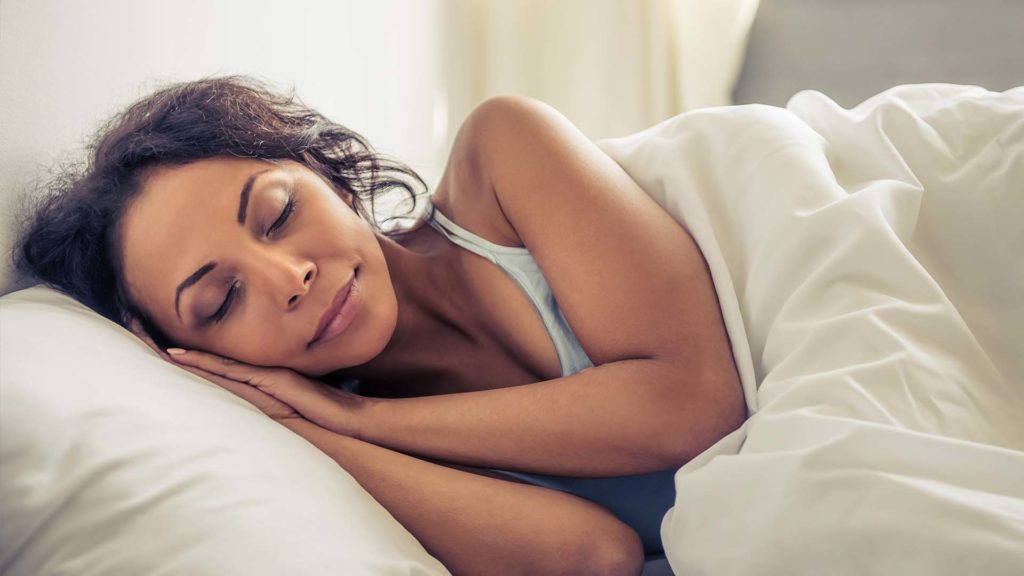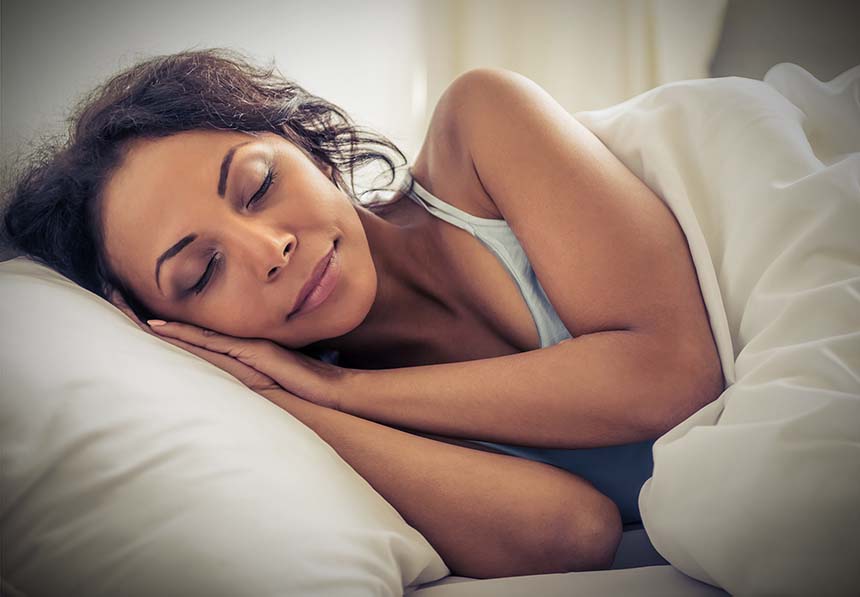According to the National Institute of Health, the function of sleep is to remove the toxins in your brain that build up while you are awake. Unfortunately, good sleep habits elude 60 million Americans who suffer from chronic sleep disorders. Sleep deprivation is the #1 medical complaint in the US and has been linked to a myriad of medical conditions. In this article, I examine the effects that medical cannabis has on our sleep patterns and what to consider when choosing a cannabis strain for your needs.

Here are some of the ways that medical cannabis aids sleep:
Cannabis Shortens The Time It Takes To Fall Asleep
A 2005 study, conducted by Dr. Claudia Jensen in two of her cannabis clinics in San Clemente and Ventura, CA, examined the need for safe and effective treatment for insomnia. Data was collected from 166 participants. Subjects included those who had difficulty falling asleep and those who had no trouble falling asleep. The outcome sought to measure the time required to fall asleep before and after cannabis usage.
The results indicated the following:
For those who consistently had difficulty falling asleep, those who used cannabis reduced the time it took them to fall asleep by an average of 30 minutes.
For those who had no problem falling asleep, the reduction in time to fall asleep was an average of 15 minutes faster.
Cannabis Lengthens The Time Spent in Slow Wave Sleep (SWS)
SWS, often referred to as deep sleep, is the reconstructive period of sleep necessary for survival. It is the stage of sleep where the body repairs muscle tissue, strengthens the immune system and is crucial for memory processing. SWS allows us to wake feeling refreshed; medical cannabis usage extends the time spent in that stage of sleep. Your heartbeat and breathing slow to their lowest levels. It occurs for longer periods during the first several hours of the night. The effect of sleep deprivation of SWS is difficulty with cognitive tasks.
Cannabis Reduces The Time Spent in Rapid Eye Movement (REM) Sleep
THC has been shown to reduce the amount of time one spends in REM sleep. This is the stage when we dream, so cannabis usage also reduces dreams. It is not clear what function dreams have, but some researchers believe their function is restorative. However, in the case of those who suffer with PTSD, who experience frequent, disturbing nightmares, the cessation of dreaming may be helpful.
It is important to mention that there is something called a REM rebound which results in a explosion of dreams, potentially anxiety provoking. This is common when heavy, regular cannabis usage ceases. The increase in REM sleep may lead to many more vivid dreams that were suppressed during the period of regular cannabis usage.
Cannabis May Help Control Sleep Apnea
Sleep Apnea is a type of sleep disorder where the sufferer stops and starts breathing many times during the night. This can lead to many serious medical problems such as high blood pressure, heart problems, depression and headaches. It can interrupt your worklife as well as have a negative impact on your personal relationships.
- A 2002 animal study, using THC, showed improvement in rats by promoting more normal breathing.
- A 2013 human clinical trial also suggested that THC reduces the symptoms of sleep apnea by relaxing the breathing of the participants.
Which Cannabis Strains Are Best for Rest?
When considering which cannabis strains are best for sleep, it is important to look at the THC, CBD and terpene content of your strains.
Most of the human clinical cannabis trials use high-THC dominant strains for their sleep studies. It has been shown that THC does have sedating effects that promote sleep, but research indicates that chronic, heavy THC consumption can disrupt healthy sleep patterns.
High-CBD dominant strains have been shown to help relieve somnolence; excessive daytime sleepiness, but are less effective in promoting night time sleep. Terpenes also play an important role in affecting sleep.
Here are some of the terpenes known to promote sleepiness:
- Myrcene
- Caryophyllene
- Limonene
- Terpineol
- Linalool
When deciding on which cannabis strain is best for you, consider a strain that contains both CBD and THC as well as a terpene profile that is sedating. Only you can decide what works for you. Trial and error is always required, but it is well worth the effort.
Source: thesleepdoctor.com, Thinking About Using Cannabis For Sleep?Here Are Some Things To Know, Dr Michael Breus
Projectcbd.org, Cannabis and Sleep Disturbances, Nishi Whiteley, Oct 29, 2017
Cannabis and Insomnia, study conducted by Dr. Rolando Tringale and Dr. Claudia Jensen

